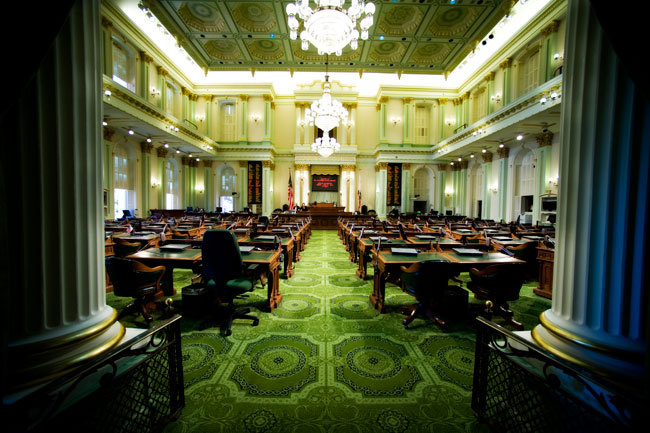Bicycle Casino Raid Could Hurt PokerStars' Chances In California, Tribal Gaming Insider SaysGolden State Online Poker Remains Unlikely In 2017 |
|
|

After 10 years worth of debate in California over online poker the only hurdle that remains is “suitability” for licensing. Some politically powerful tribal gaming groups in the state don’t want PokerStars involved for a myriad of reasons.
The Isle of Man-based company, which controls about 70 percent of the worldwide online poker market, has partnerships with two tribal groups—the San Manuel Band of Mission Indians and the Morongo Band of Mission Indians—as well as the card rooms Commerce Casino, Hawaiian Gardens Casino and the Bicycle Casino.
There are 60 tribes in California with gaming, according to the California Gambling Control Commission.
Those partnerships are for a potential regulated Golden State online poker market. PokerStars would be their technology partner because developing your own poker platform is no easy task.
This week, the Bicycle Casino was raided and shut down for nearly 24 hours by federal authorities over suspected money laundering happening inside the property. According to Steve Stallings, chairman of the California Nations Indian Gaming Association, the raid could deepen the divide that has prevented online poker legalization.
“Another indicator of how fragile that PokerStars coalition may be is the raid on the card club in [Bell Gardens],” Stallings told Card Player. “They’re part of the PokerStars relationship. When a card room gets raided by federal law enforcement, it only adds to the problems of PokerStars and some of its partners, not all of them, and this whole kind of suitability issue that will affect everyone.”
PokerStars is in no way involved with the ongoing investigation into the Bike, but because online poker remains a highly sensitive political issue a development like a casino raid could complicate an already tough situation for internet card playing.
There was some backlash last spring after the former CEO of PokerStars’ parent company Amaya was charged in Canada with insider trading. PokerStars, under prior ownership, was once in the crosshairs of the federal government, but the firm settled for more than $700 million and didn’t admit to any wrongdoing.
The PokerStars coalition still remains intact, but there’s been less of a PokerStars presence in Sacramento lately, according to Stallings.
“We haven’t heard the kind of strong lobbying that we have previously,” Stallings said.
Amaya recently announced its fourth quarter earnings and laid out how poker is accounting for an increasingly smaller piece of the company’s revenue pie. The online gaming giant has gone all-in on developing other online casino games and sports betting.
The direction Amaya is taking has not gone unnoticed in California, Stallings said.
He said that it would be “a turning point if you heard they were not seeking a [California] license or were giving up their partnerships.”
California is only considering online poker and not other web casino games.
At this point in time, Stallings pegged California’s online poker chances in 2017 as being worse than 50-50, despite the online poker legislation being “98 percent” of the way done. There’s a bill on the table, which includes all the advances on the proposal made in the past several years, but there’s been no movement on it yet this year.
California’s tribal gambling market is worth $4 billion a year, making it the second largest casino market in the nation behind Nevada.
